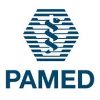
Dr. Susan Taylor, MD
Provide Feedback
1st Floor
Philadelphia, Pennsylvania 19104
Medical Expertise of Dr. Susan Taylor, MD
- Aging Skin
- Alopecia Areata
- Chemical Peel
- Cherry Angioma
- Cosmetic Dermatology
- Dermal Fillers
- Destruction of Benign Skin Lesions
- Electrosurgery for Skin Lesions
- Facial Aging
- Female Pattern Baldness
- Glomangioma Hair Diseases
- Hair Loss (Alopecia)
- Hyperpigmentation
- Keloid Scar
- Removal Lentigo
- Male Pattern Baldness
- Melasma
- Sebaceous Hyperplasia
About Dr. Susan Taylor, MD
Susan C. Taylor, MD, a diplomat of the American Board of Internal Medicine and the American Board of Dermatology, is a leading dermatologist with extensive experience as a clinician, clinical researcher, pharmaceutical industry consultant and CEO of a small, privately held cosmetic company.
Dr. Taylor has twenty-two years of diagnosing and treating a wide range of dermatologic disorders and skin cancers. Additionally, she established and is the Founding Director of the Skin of Color Center at St. Luke's Hospital Center in New York, a first of its kind in the nation. The mission of the center is the diagnosis, treatment, and investigation of diseases in individuals with skin of color, including those of African, Hispanic, and Asian ancestry. Her teaching responsibilities have included lecturing medical students and dermatology residents as well as to dermatologists globally.
Dr. Taylor has served as an investigator, consultant and advisory board member for both pharmaceutical and cosmetic companies for over 10-years. As an industry consultant, she has advised industry regarding protocol design, execution and interpretation, product development and regulatory, marketing and sales strategy.
Dr. Taylor is the creator of and former CEO of T2 Skincare's Dr. Susan Taylor's Rx for Brown Skin. As CEO, she directed branding, sales, and marketing strategies. The line was sold nationally in Sephora, Macys, Dillards, JC Penneys; internationally in the Middle East; as well as on Home Shopping Network (HSN) and numerous ecommerce sites. Under Taylor's leadership, the brand strategy has evolved to direct-to-consumer web based and television sales through a merger with the Syndero Company. Additionally, Taylor was Founder and the first President of the Skin of Color Society, which promotes awareness of and excellence within the area of special interest of dermatology - skin of color.
Dr. Taylor's academic appointments include Assistant Clinical Professor of Dermatology, College of Physicians & Surgeons, Columbia University, and Clinical Assistant Professor of Dermatology, Associate Faculty of the School of Medicine, University of Pennsylvania.
Patient Education Resources
There are several ways to reduce the skin redness caused by rosacea:Avoiding triggers: Triggers such as sun exposure, wind, high temperatures, stress, spicy foods, and alcohol, can worsen the symptoms...
Biologics are a class of medications that can be used to treat eczema, a chronic skin condition characterized by inflammation and itching. Biologics work by targeting specific parts of the immune syst...
Isotretinoin, previously marketed as Accutane, is a medication that is used to treat severe cystic acne that has not responded to other treatments. Isotretinoin is a form of vitamin A and works by ...
The best treatment for warts will depend on the type and location of the wart, as well as the patient's overall health and preferences. Some common treatment options for warts include:Salicylic ac...
Treatment for nail fungus (onychomycosis) can be challenging, as the fungus can be difficult to eliminate and may recur. Treatment options include:Topical antifungal medication: Over-the-counter antif...
Education & Training
- Residency: New York Presbyterian Hospital - Columbia Campus
- Residency: Pennsylvania Hospital - University of Pennsylvania Health System
- Medical School: Harvard Medical School
